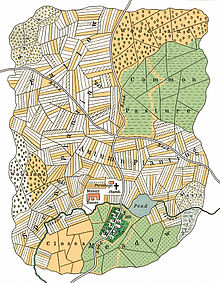Do you have books just lying around on your Kindle, clicked and downloaded back in the mists of time because they seemed to have something important to say then forgotten, or simply left upstream as the river of information kept on flowing passed? I thought you might, so have I (quite a few actually). Well, an airport lounge always affords the opportunity to paddle back and take a look; this is how, as I embarked on my Christmas travels, I came to read “Open: how we’ll work, live and learn in the future” by David Price and subsequently came to put this blog post together as a kind of end of year review.
Although the New York Times might have labeled 2012 the “year of the MOOC”, for me it was most definitely 2013, just take a look at my blog posts. I think I participated in 8 or 10 altogether, at least half of which I either completed or participated in to a large extent. However, I don’t think I’d like to remember the year as just being synonymous with MOOCs. After all, I was active in many online communities as well as kept busy attending to my personal learning network, so I’d rather like to think of 2013 as the year that I discovered the “global learning commons”. But what do I mean? According to the author of the aforementioned book, the global learning commons is something that
encompasses the ‘ecology’ of learning: the relationships we have with each other; the creation of an hospitable habitat for learning; how we cultivate the evolution of learning in communal, social environments, [and] transfer it successfully to others.
I like this idea because it gets away from what’s become almost ceaseless noise about MOOCs and their platforms/sponsors to put the spotlight firmly on learning (three cheers!!). That is, learning across a variety of environments in which open is a fundamental feature, learning that’s personally driven by passion and/or purpose and open in the sense of not just open access but in the sense of open values and actions too. In truth though, this notion is quite contentious because openness signifies the battle being fought for the control of knowledge (hence, the reference to the commons with its historical connotations and its antithesis, the enclosure); the idea also signifies a switch in thinking from teaching to learning, or pedagogy to heutagogy, which is equally contentious.

Shaping how we interact online in the global learning commons, where collaborative participation abounds, are four inter-connected and consequential values making up the acronym SOFT: share, open, free and trust. Sharing appeals to people’s sense of altruism; they freely share with no sense of return other than maybe a little recognition, which in turn encourages reciprocity and requires that we’re open. Free can mean many things, but the notions that sit best with me here are “free to roam”, wherever your passion/purpose takes you, and “free to fail”. Trust is best thought of as “in ourselves we trust”, which gets us away from the plethora of institutions that we’ve recently lost trust in and away from the “command and control” mindset of the industrial era.
It’s these values and actions that are thought set to become increasingly important because they allow knowledge to flow freely and quickly, facilitate collaboration and in turn promote innovation. Looking back over my own participation for the year, I can certainly vouch that these values, actions and outcomes are to the fore in the informal social learning environments that I’ve been engaged in. And what’s more, it’s the learner that’s calling the shots. However, this shift is largely being experienced not in education or the workplace but in individuals’ social space. It’s true. Using my experience “in the new learning landscape” and telling of my learning journey “beyond the walled garden“, I’ve presented at a couple of education conferences this year and both presentations clearly illustrate this. In addition, I’ve recently collaborated, as part of a small international group, on a paper that’s been accepted for the European MOOC Summit in Switzerland in February, which again is proof of new and innovative things that can happen in open environments, or the global learning commons. I’ll blog about this at a later date, maybe after the conference, because it’s been an interesting learning experience, one that none of the group had prior experience of or that none of us could’ve have been prepared for, not in the management/logistics of the endeavor nor in its potential for cooperative learning.
So now, with all this in mind, it kind of begs the question of me, “so now you know (about the global learning commons, or learning in open online environments), what are you going to do about it?” This is the “transfer it successfully to others” bit that was mentioned in the quote above. Good question. Because like I said earlier, this is happening in the informal social space; I’m not a big shot in higher education (just a limpet on the underside), I’ve not had anything to do with learning in the workplace for over a decade and in the day job I teach adults that education didn’t do right by the first time and that “accidents of geography” now similarly place on the wrong side of the digital divide.
Looks like that’s the challenge for 2014. I’ll keep you posted.
Image source: http://en.wikipedia.org/wiki/Economy_of_England_in_the_Middle_Ages
References: Price, David (2013). OPEN: How we’ll work, live and learn in the future. Crux Publishing. Kindle Edition.

This work is licensed under a Creative Commons Attribution-NonCommercial-ShareAlike 4.0 International License.


